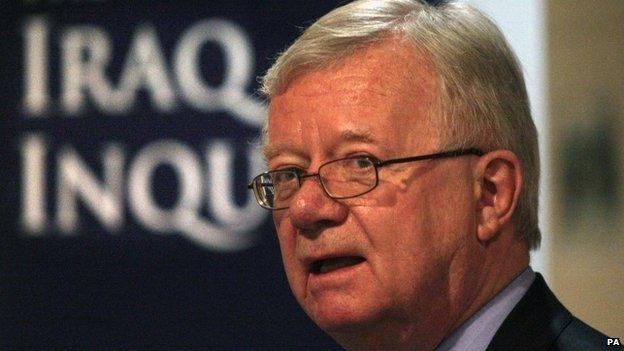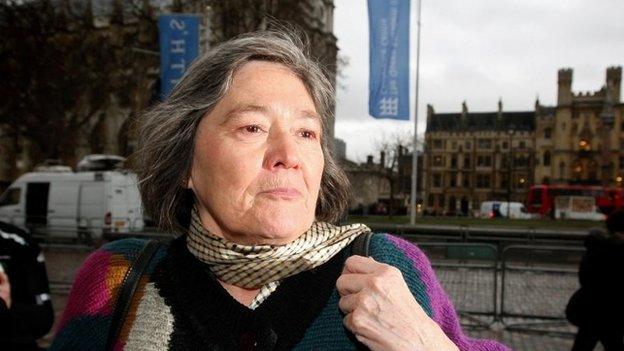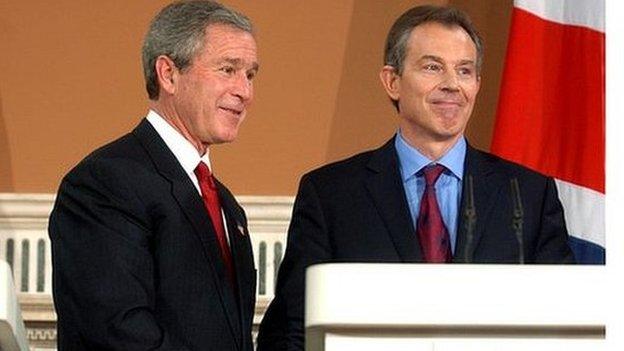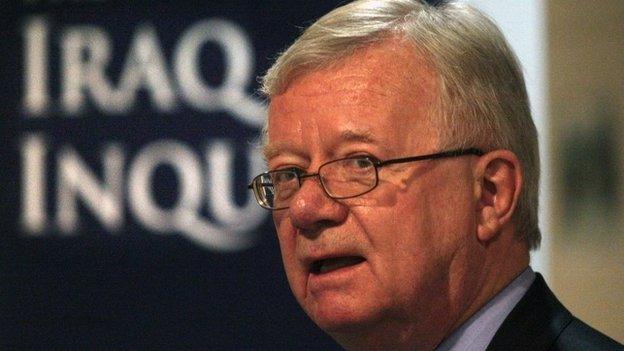Sir John Chilcot facing legal action over report delays
- Published

Sir John Chilcot began his work in 2009
Sir John Chilcot is facing legal action from bereaved families after again refusing to set a timetable for publication of his report into the Iraq war.
In a statement Sir John said the "Maxwellisation" process, giving those facing criticism the right to reply, was to blame for the delay.
He also said some of those responses had opened up new lines of inquiry.
Lawyers for the families said they would now take "further legal steps".
Sir John began work on his inquiry in 2009, but he has yet to set a date for publication of his findings.
In a statement, external, on Wednesday he said he understood the "anguish", of those who had lost loved ones and had written to the bereaved families.
But Matthew Jury, of McCue and Partners, a law firm representing some of the families, said: "Sir John has refused the families' legal request to impose an effective timetable on the Maxwellisation Process, thereby preventing any deadline being set for publication of the report".
"In the circumstances, the families' legal team..... will be taking further legal steps as are considered necessary and appropriate."
'Bitterly disappointed'
Reg Keys, whose son Tom died in Iraq in 2003, said he was "bitterly disappointed" by Sir John's explanation for the delay.
The witnesses should have been given a maximum of six months to respond to criticism, said Mr Keys, and he feared the whole process had now become a "farce".
"To drag it out is just unbearable for the families of the fallen."

Tony Blair was one of more than 100 witnesses at the inquiry
Sir John has faced a barrage of criticism in recent weeks, with Prime Minister David Cameron expressing his frustration at the delays.
In his statement, the Iraq inquiry head said: "The inquiry has remained in control of its deadlines throughout the process. In some cases, the response sent to us required detailed and complex analysis which has taken time."

Clare Short suggested Maxwellisation was not to blame for the delays
Clare Short, who was international development secretary at the time of the 2003 invasion, said she did not believe the Maxwellisation process was the real reason for the hold-up.
The former minister is among those criticised in the report but she said the idea people were "endlessly being consulted I think is not true".
"I think what might be true is that the draft is very poor and it's as big as War and Peace I understand, lots of people have made serious responses and they are probably having to redraft," she told BBC Radio 4's The World at One.
The Chairman of the Foreign Affairs Select Committee, Crispin Blunt, has said that Parliament cannot impose a deadline for publication of the Chilcot report as it would "wreck the inquiry"
Speaking on Radio 4's Today programme, Mr Blunt said he hoped the inquiry would conclude within six months and he called on Sir John to "bring clarity" to the process " as soon as he can".
- Published21 January 2015

- Published21 January 2015
- Published5 July 2016

- Published29 May 2014

- Published27 May 2014

- Published26 August 2015
